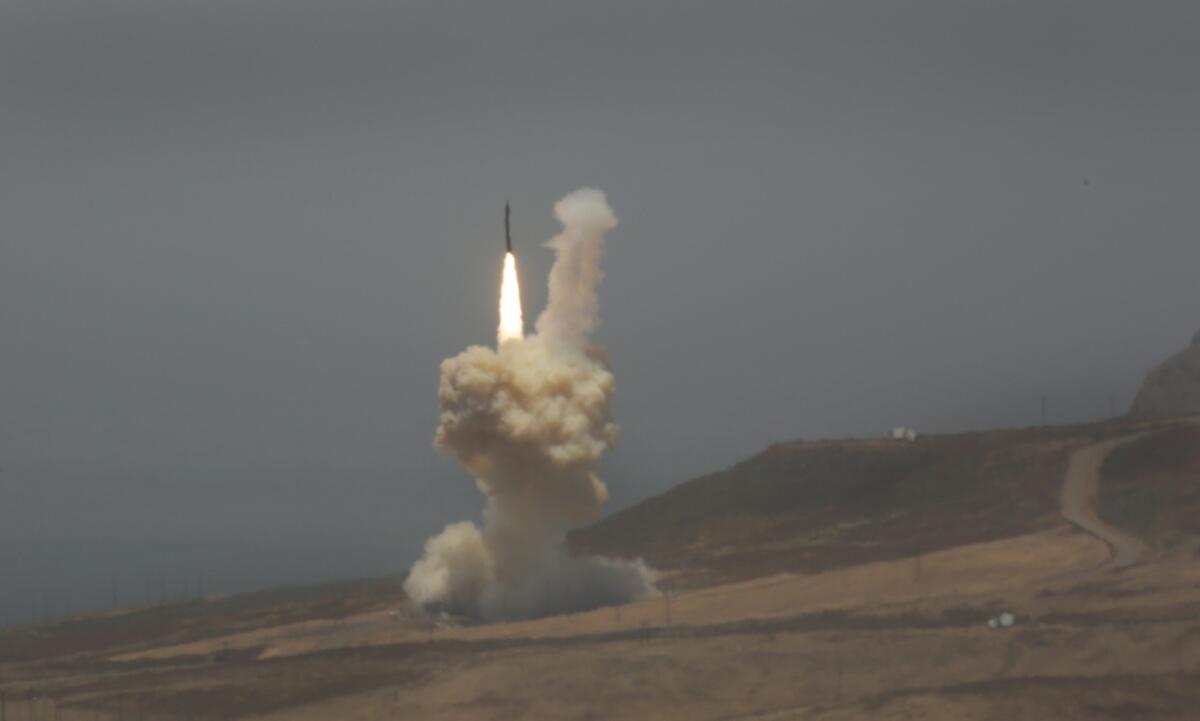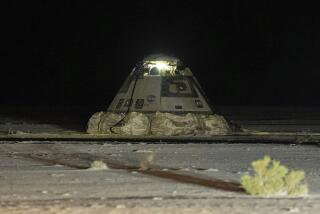Boeingâs $1-billion âkill vehicleâ contract for missile defense is killed

The Pentagon canceled a Boeing Co. contract for a âkill vehicleâ envisioned to shoot down missiles from North Korea or Iran, the latest setback for a next-generation system that has struggled to prove its effectiveness.
The termination of the Redesigned Kill Vehicle comes as the maker of the interceptorâs warhead, Raytheon Co., continued to struggle with design and manufacturing problems that increased costs, the Missile Defense Agency said in a statement Wednesday. Boeing had received a $1-billion contract in May 2017 for the project.
âEnding the program was the responsible thing to do,â Michael Griffin, the under secretary of defense for research and engineering, said in the statement. âAfter exercising due diligence, we decided the path weâre going down wouldnât be fruitful, so weâre not going down that path anymore.â
The Defense Department plans to start a competition for a new contract to design a next-generation interceptor for its Ground-based Midcourse Defense program, according to the statement.
After the nationâs homeland missile defense system successfully intercepted a mock enemy warhead high above the Pacific on May 30, the then-director of the U.S.
The interceptor had been billed as a major improvement for a $180-billion network of ground- and sea-based missile interceptors, sensors and communications links intended to defend the U.S. from a limited North Korean or Iranian attack by dispatching a missile to crash into and destroy it.
Although the Defense Department has claimed progress in missile defense tests against a dummy target, arms control experts have repeatedly said the Pentagon has conducted only tightly controlled tests in which the target warhead can easily be picked out from decoys.
Boeing said in a statement that it accepts the Missile Defense Agencyâs decision âand supports the competition for a new, next-generation interceptor.â The Chicago aerospace company said âwe will continue to support the requirements that our customer sets forth for effective missile defense, just as we have for more than two decades.â
Raytheon said in a statement that the Missile Defense Agency âis updating its requirements in the face of an increasingly complex threat environmentâ and that the Waltham, Mass., contractor supports the decision to âinitiate a competition for the next-generation interceptor to meet these advanced threats. â
The Pentagon is pushing ahead with an expansion of the nationâs homeland missile defense system, despite a newly recognized deficiency that affects nearly all the systemâs rocket interceptors, a Los Angeles Times investigation has found.
The termination is effective Aug. 22, according to Mark Wright, director of public affairs at the Missile Defense Agency.
Griffin decided to cancel the program Aug. 14 and had backing from Deputy Defense Secretary David Norquist, Wright said. The move marks one of the first major contracting decisions since Defense Secretary Mark Esper took office last month. Esper is a former top lobbyist for Raytheon who has promised to recuse himself from most decisions involving the company.
More to Read
Inside the business of entertainment
The Wide Shot brings you news, analysis and insights on everything from streaming wars to production â and what it all means for the future.
You may occasionally receive promotional content from the Los Angeles Times.










